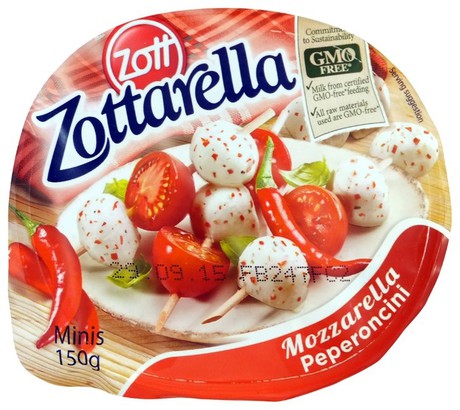Cereals, dairy lead the way in GMO-free labelling

Ongoing interest in ‘clean’ labels and greater transparency has spawned a marked upturn in interest in GMO-free or non-GMO products, particularly in the cereals and dairy sectors.
Launches featuring GMO-free claims and labelling remain relatively limited on a global scale, according to Innova Market Insights, with just 4% of launches in the 12 months to the end of June 2015 using GMO-free labelling. This compares to 13% marketed on an additive-free or preservative-free platform, 7.8% promoted as organic and 6.3% as natural.
However, there has been a significant rise year-on-year in GMO-free products, driven mainly by rising levels of interest in the USA.
According to Lu Ann Williams, director of innovation at Innova Market Insights, the use of genetic modification has become an issue in recent years in the USA in particular, where there has traditionally been only limited consumer resistance to GM foods. “While GM foods have to be labelled in other parts of the world, including the EU,” she reports, “this has not been the case in the USA to date. After rising levels of concern, the growing use of GMO-free labelling and the development of schemes such as Non-GMO Project Verification, some US states started to discuss introducing their own legislation and there is currently also a move for USDA to create its own voluntary non-GMO certification program.”
Bakery products and snacks lead in terms of numbers of global GMO-free introductions, accounting for 12% and 11% respectively, reflecting the significance of GM ingredients in sectors using high levels of cereals for food. Over 13% of launches of breakfast cereals and cereal bars feature non-GMO labelling, compared with 7.4% for snacks and 4.6% for bakery products.
There has also been relatively strong interest in non-GMO labelling in the US dairy industry, where a natural image has traditionally been important and there is already ongoing activity in organic and pasture milks. There is a strong link between organic and GMO-free certification, with many products using both types of positioning. In the USA, these include leading organic dairy producers as well as non-dairy drink lines. The leading US Greek yoghurt brand, Chobani, is also certified non-GMO.
Dairy products have also been one of the key areas for non-GMO or GMO-free labelling in Europe, where, despite compulsory EU regulations on labelling of genetically modified foods having been in force since the 1990s, there has still been ongoing pressure to verify and more easily identify non-GMO options. This has been led by countries such as Germany and Austria, with GMO-free dairy launches accounting for nearly 28% of Austrian dairy introductions in the 12 months to the end of June 2015. This is compared with 3.2% in the EU as a whole, just over 5% globally and just under 10% in the USA.
Four food safety tips for the silly season
With food poisoning typically rising over the summer months, New Zealand Food Safety has provided...
Saputo Dairy Australia launches Individually Quick Frozen shredded mozzarella
SDA has developed the product for food service outlets using the IQF process that...
Aust foodservice professionals honoured at national awards
Foodservice professionals from across the country gathered in Sydney to celebrate the winners of...












